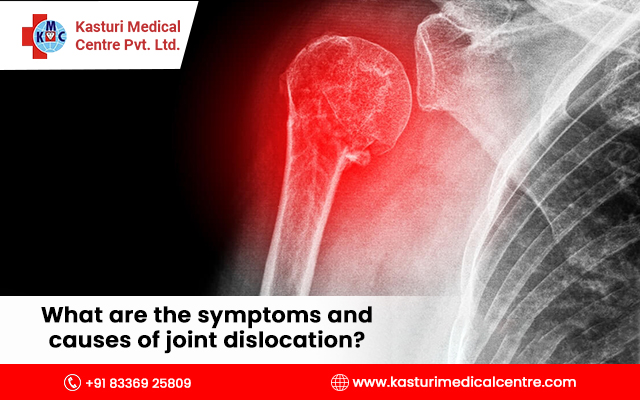Joint dislocation occurs as a result of a traumatic injury to the bones. Get to know its symptoms and causes from the best orthopedic doctors in South Kolkata.
What are the symptoms and causes of joint dislocation?
Joint dislocation occurs when the bones that form a joint get forced out of their usual position, disrupting the stability and the alignment of the joint. The painful injury can affect the different joints in the body, including the elbow, shoulder, hip and knee. Learn the symptoms and causes of joint dislocation from the best orthopedic doctors in South Kolkata.
Signs of joint dislocation
- Pain: Once the joint gets dislocated, it causes intense pain at the place of injury. The pain might be severe and sudden, making it impossible or difficult to move.
- Swelling: Dislocated joints often become inflamed and swollen due to damage to the soft tissue and the natural response of the body to injury. Swelling might occur rapidly following dislocation and might continue for a few days.
- Deformity: According to an orthopedician in South Kolkata, an abnormal shape of the joint or deformity might be visible following a dislocation. The affected joint might appear to be protruding, disfigured or misaligned compared to its usual position.
- Numbness or tingling: Nerve damage or compression is usually associated with joint dislocation and can result in tingling, numbness or weakness in the surrounding area.
- Limited range of motion: Dislocated joints usually cause restricted movement, with patients unable to straighten, fully bend or rotate the affected joint. Attempting to move the joint might further cause pain and discomfort.
Causes
- Injury or trauma: Joint dislocations result from falls, sports-related injuries or direct blows to the joint. The force applied exceeds the normal range of motion, causing the bones to move out of alignment.
- Repetitive stress or overexertion: Certain movements or activities that cause excessive stress on joints can enhance the risk of dislocation over time. This includes some activities like heavy lifting, repetitive motion or forceful, sudden movements.
- Joint instability: Conditions that weaken the structures around the joint, like tendon injuries, ligament injuries or joint laxity disorders, can make individuals prone to recurrent joint dislocations.
- Congenital factors: Some individuals are born with structural variations in the joint or congenital abnormalities that predispose them to joint dislocation. These abnormalities might affect the size, shape and alignment of the bones.
- Degenerative changes: Chronic conditions like rheumatoid arthritis or osteoarthritis can result in degenerative changes in the joints, including bone spurs or cartilage erosion. These changes can increase the susceptibility of joint dislocation.
Consult the best orthopedician in South Kolkata if you have a dislocated joint. They will provide effective treatment and management strategies to help you recover properly.

